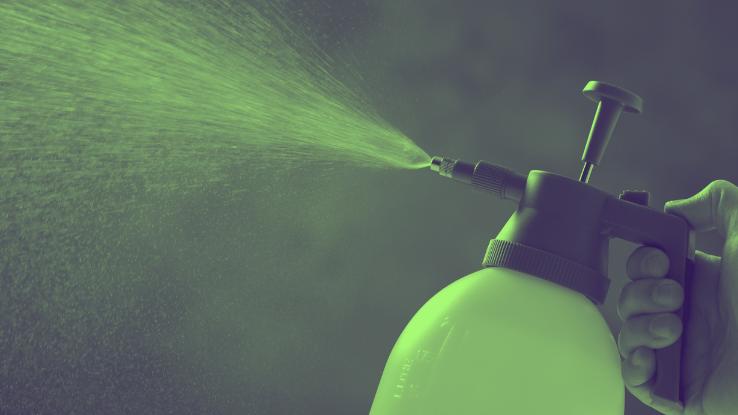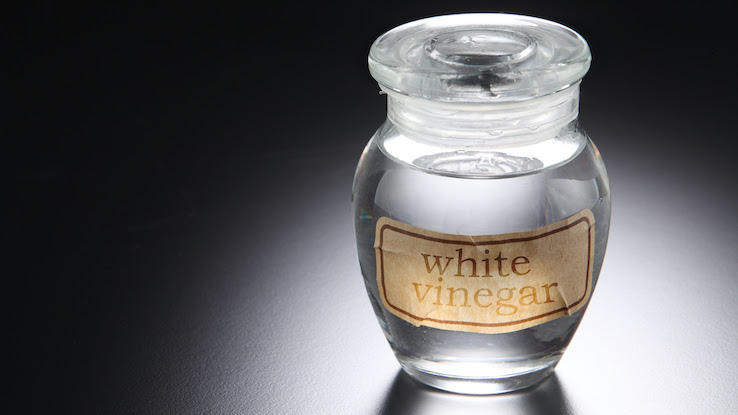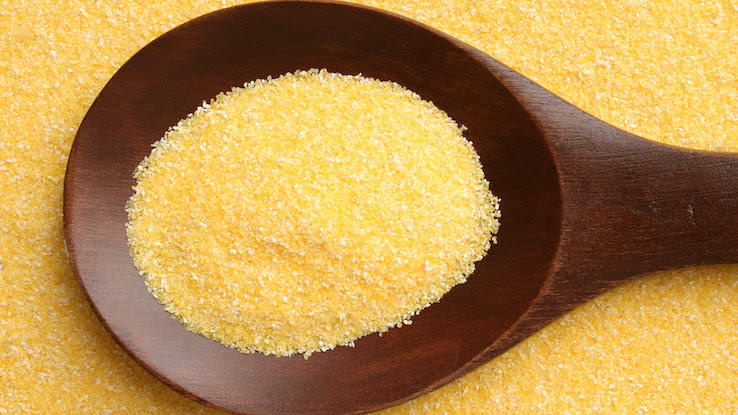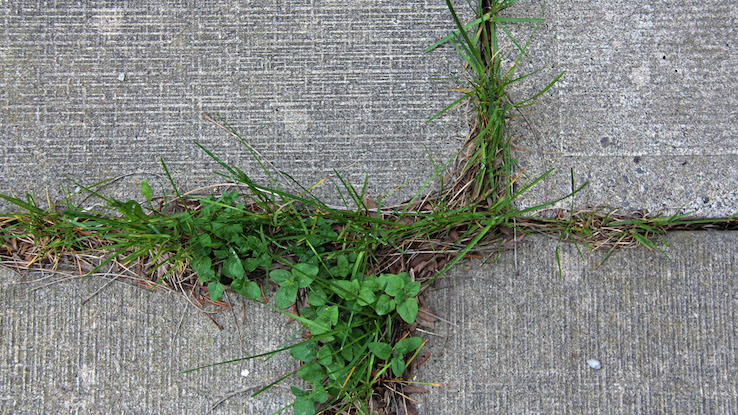Can You Use Fertilizer With Weed Killer In A Vegetable Garden

Most of us can agree that weeds are a bit of a nuisance, especially if they're growing in our yards and gardens. Not only are they unattractive, but they also steal water, sun, and nutrients from the plants you're actually trying to grow. The problem? Most store-bought weed killers contain chemicals and toxins. Although effective, these weed killers can contaminate your drinking water, threaten your pets and wildlife, and harm your family's health.
Thankfully, there are natural, at-home remedies for killing weeds that don't cause the same harms as herbicides. So, next time you're looking to clean up the yard, don't reach for the Roundup — try these solutions instead.
One of the best alternatives to chemical weed killers? A spray that uses a vinegar base. Gardening communities around the globe swear by it. The acetic acid in vinegar helps draw out moisture from the weeds; this kills them rather quickly, especially if applied to young weeds. Traditionally, vinegar-based home remedy weed killers contain:
- 1 gallon of plain white vinegar
- 1 tablespoon of liquid dish soap
Aside from the moisture-draining properties of the vinegar, the dish soap works as a surfactant. That is, it reduces the surface tension of the weeds, allowing the vinegar to stay on the leaves for longer. As a result, the weeds absorb more of the vinegar. Best of all, this natural solution is easy to make. All you have to do is combine these two basic ingredients: mix them well and pour them into a spray bottle.

Some people also add a cup of salt to the mixture since salt is also an effective way to suck out the moisture from the weeds. It's also harmful to weeds as it negatively impacts their ability to undergo photosynthesis as well as how well they "breathe." However, adding salt has a major downside: it can leach into the soil, making it more difficult to grow anything. If you're not planning on planting anything on a particular patch of soil in the future, then you may want to consider a larger quantity of salt, but, if you're planning to grow flowers or vegetables, you might want to refrain from over-salting the mixture.
For best results, apply this vinegar-and-dish-soap concoction to your weeds in the middle of the day when the sun is out. Be sure to spray the weeds — not other plants or the soil. If conditions are right, you may notice some withering just hours later. Of course, you may have to apply a vinegar-based weed killer several times to really polish off these garden pests; unlike chemical, store-bought weed killers, this at-home solution won't work its way into the weeds' roots, making the process a bit more gradual.
Borax Works Wonders on Specific Weeds
Borax, or sodium borate, is another effective way to kill weeds. Borax weed killer is most effective when used to kill ground ivy and creeping Charlie, common invasive weeds. The solution is especially easy to make. Just mix the following:
- 1 cup of powdered Borax (or sodium borate)
- 2 gallons of water

While you can use this Borax solution on your lawn, be aware that overuse can easily damage other plants. As such, use it sparingly. Instead of pouring the liquid all over your yard, put it in a spray bottle to more lightly and evenly distribute it. What's more, homemade sodium borate weed killers also kill ants. Apply it any time, day or night, and it works the same.
Cornmeal Will Stop Weeds in Their Tracks
For those looking to find an effective method for weed prevention, cornmeal will also do the trick. Instead of using an herbicide like Preen, which is chemical-based, cornmeal alone, when applied directly to the soil, will stop a weed's seeds from germinating. In fact, it can kill everything from dandelions to chickweed to spurge and more.

Cornmeal is not a weed killer but a weed preventative. Applying it to weeds that are already growing won't do much. Gardeners recommend using it in early spring to catch the weeds before they start growing. After applying the cornmeal, make sure to lightly water the soil to activate it. For best results, reapply the cornmeal frequently.
Killing Weeds in the Driveway
Killing weeds that appear in the cracks in your sidewalk or driveway is a little different than killing weeds in your garden or yard. Even natural, homemade weed killers can be a bit stronger since you don't have to worry about harming other nearby plants or damaging the soil.
The first option? Use rubbing alcohol as a weed killer. A typical, rubbing alcohol-based solution consists of:
- 2 tablespoons of rubbing alcohol
- 1 quart of water
Mix these two ingredients in a spray bottle and go to town on the weeds sprouting up from cracks in your driveway. Apply this solution generously; it will work rather quickly.

Another age-old weed killer that's both natural and effective is salt. There are a few ways to use this tried-and-true remedy. First, you could combine the following:
- 1 teaspoon of salt
- 2 quarts of boiling water
From here, you actually pour the boiling, salt-filled water onto the weeds. Looking for a safe way to pour this hot water on your driveway or sidewalk? Try using a kettle — that spout can make the process safer and more efficient. If you're not interested in boiling water, sprinkle the salt directly on the weeds. Although a little less effective, it'll still do the trick. In fact, salt often yields results that last longer than store-bought chemical weed killers. Just keep in mind that salt will dry out other plants, so it's best to keep it away from your lawn or garden and, instead, use it on driveway weeds.
Resource Links:
- "Weeding the Garden without Chemicals" via Informit
- "When Salt Meddles Between Plant, Soil, and Microorganisms" via Frontiers in Plant Science
- "Ground Ivy" via Center for Invasive Species and Ecosystem Health
- "Creeping Charlie" via University of Wisconsin-Madison
- "Cornmeal as Weed Killer?" via Custom Weed and Pest Control
MORE FROM SYMPTOMFIND.COM
Can You Use Fertilizer With Weed Killer In A Vegetable Garden
Source: https://www.symptomfind.com/health/natural-weed-killer-home-remedy?utm_content=params%3Ao%3D740013%26ad%3DdirN%26qo%3DserpIndex
Posted by: martinhambsood.blogspot.com

0 Response to "Can You Use Fertilizer With Weed Killer In A Vegetable Garden"
Post a Comment